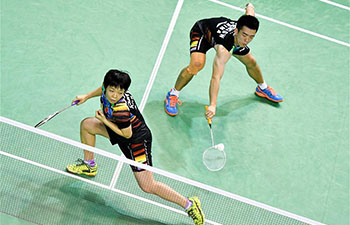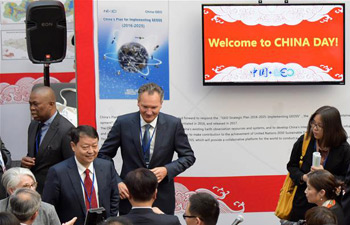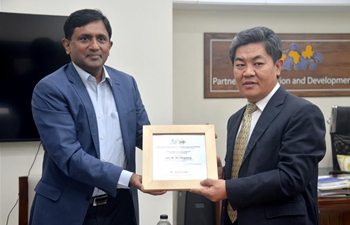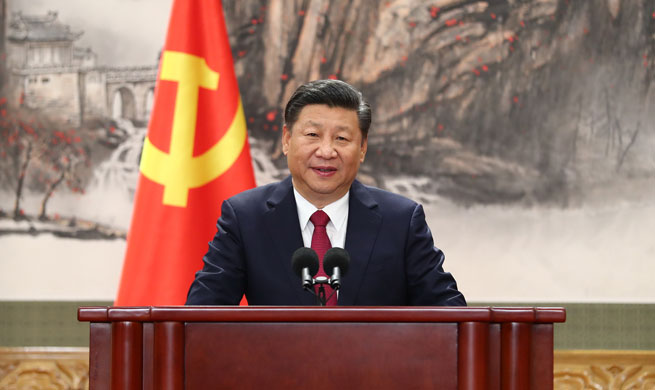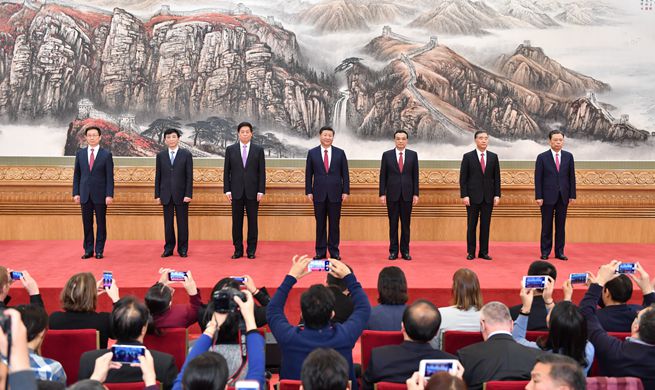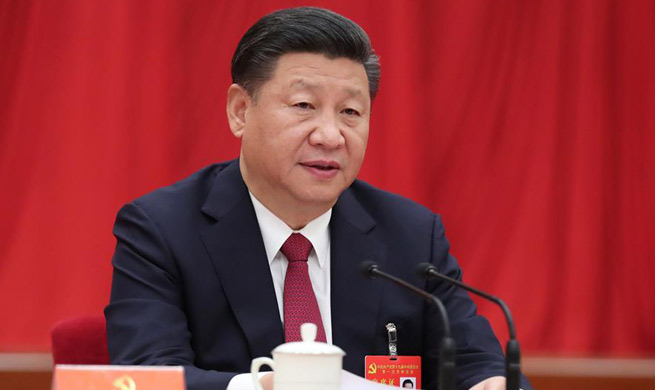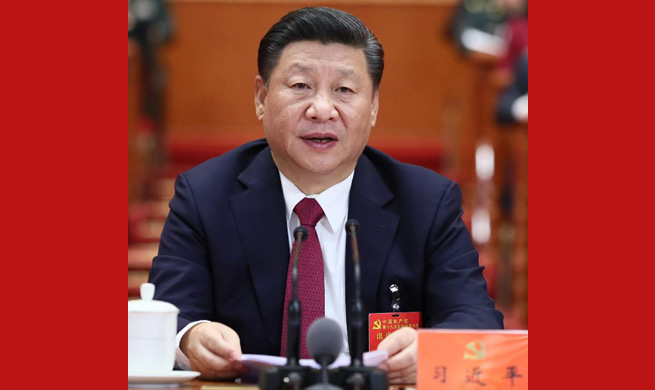UNITED NATIONS, Oct. 25 (Xinhua) -- The Russian ambassador to the United Nations has explained why Russia vetoed a UN Security Council draft resolution Tuesday that would have extended the term of an independent panel of investigators probing who was behind the use of chemical weapons in Syria.
Sponsored by the United States, the draft resolution had sought to extend the mandate of the Joint Investigative Mechanism (JIM) of the United Nations and the Organization for the Prohibition of Chemical Weapons for another year.
Among the 15 members of the Security Council, 11 were in favor, Russia and Bolivia were against, while China and Kazakhstan abstained from voting. As Russia is a permanent member of the Security Council, its "no" meant the draft resolution was rejected.
Prior to the vote, the Russian Ambassador to the United Nations, Vassily Nebenzia, proposed a postponement till Nov. 7, arguing the extension should be discussed after the publication of the JIM report, which was only two days away.
Nebenzia told the council the hasty vote was intended to embarrass Russia.
However, the proposal was rejected by the Security Council 8-4, with three abstentions.
After Tuesday's vote, The United States expressed its disappointment. The U.S. Deputy Permanent Representative to the United Nations, Michele Sison, told the council the United States "deeply regrets" Russia's veto.
Querying Russia's motive for criticizing the investigators, she said,"The question we must ask ourselves is whether the JIM is being attacked because it has failed in its job to determine the truth in Syria or because its conclusions have been politically inconvenient for some council members."
The U.S. Ambassador to the United Nations, Nikki Haley, who was absent from Tuesday's vote, said in a statement released through her mission that Russia has "made it clear that it does not care about stopping the use of chemical weapons in the world" by rejecting the JIM's extension.
At a daily briefing, U.S. State Department spokesperson Heather Nauert also said the United States was very disappointed that Russia put "political considerations over the Syrian people."
The British Ambassador to the United Nations, Matthew Rycroft, noted that it was Russia that had initiated the JIM. Rycroft accused Russia of abusing its veto power to side with Syria, which he said has no regard for international norms.
The French Ambassador to the United Nations, Francois Delattre, called Russia's veto a lost opportunity for the international community. He said the non-proliferation regime has been one of the greatest achievements in the past decades and the backbone of international peace and security.
Urging a renewal of the JIM's mandate, Delattre said, "The mechanism has shown its mettle. We have the responsibility of building the necessary consensus to put an end to the use of chemical weapons in Syria (and) also preventing its re-emergency elsewhere."
Wu Haitao, charge d'affaires at the Chinese permanent mission to the United Nations, said China, which abstained from the vote, is opposed to the use of chemical weapons and supports the JIM.
However, the draft resolution while containing positive elements, also has issues of concern for some members of the council. Wu said the council could have continued consultations so that the text received unanimous support.
Defending his country's position, the Russian ambassador said the Russian veto did not mean an end to the JIM. "We will return to this matter ... (We) will examine what the mandate of the JIM should be so that it fulfills its work in a professional, objective and impartial way," Nebenzia told the Security Council after his veto.
Calling Tuesday's vote "senseless" and intended to embarrass Russia, he regretted that "others chose the path of confrontation and division within the Security Council," referring to the rejection of his proposal for a postponement.
He assured that the veto would not impact the fate of the JIM.
The Security Council unanimously approved of the JIM in 2015 and renewed its mandate for another year in 2016. The current term expires on Nov. 17, 2017.







